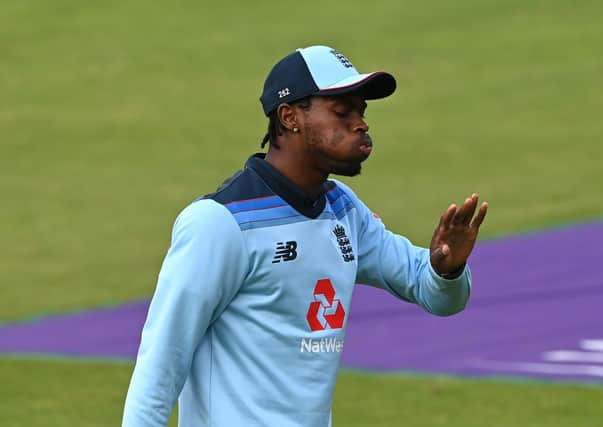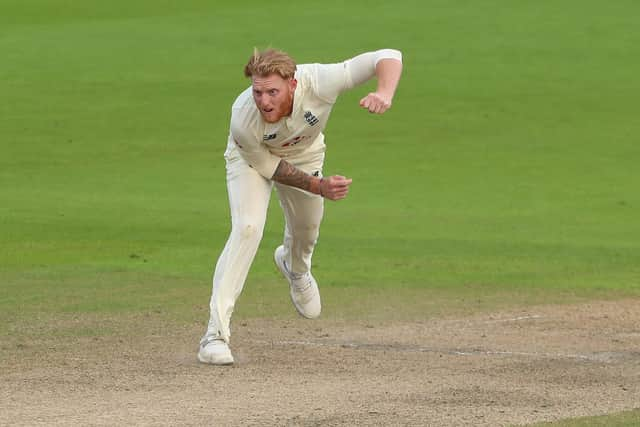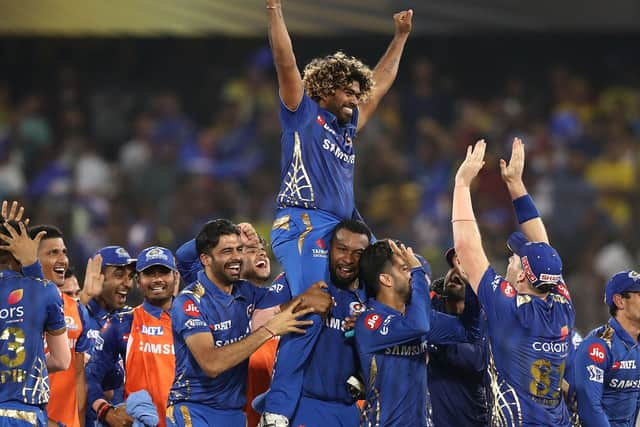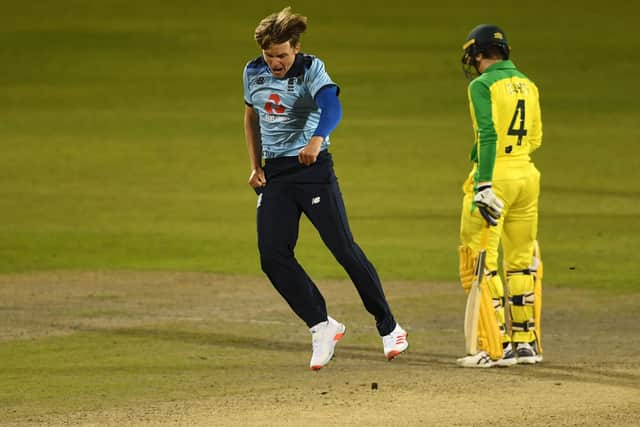Cash is king as cricket landscape changes beyond recognition - Chris Waters


The Football Association announces that Harry Kane, Marcus Rashford and Harry Maguire will miss England’s forthcoming games in the Nations League.
The trio require a break, it is said, after weeks away in a biosecure bubble playing in a lucrative franchise competition in the Middle East.
Advertisement
Hide AdAdvertisement
Hide AdIn the process, they all earned a substantial amount of dosh – and, let’s face it, they must be short of a bob or two – and they now need some downtime in a busy schedule.


This announcement is followed by Gareth Southgate, the England manager, insisting that the three players remain utterly committed to the England cause and that they will be ready and refreshed for Euro 2021.
Sound familiar?
It does if you’re a cricket fan au fait with the announcement last week of England’s squads for the forthcoming trip to South Africa.
Three players, Ben Stokes, Jofra Archer and Sam Curran, have been rested for the one-day leg of the tour due to their recent exertions in the Indian Premier League, played this year in the Middle East owing to coronavirus.


Advertisement
Hide AdAdvertisement
Hide AdOf course, one is not comparing like with like – cricket and football are hardly the same, although heaven knows that the twain is getting closer to meeting all the time, with the expansion of T20 and egregious concepts such as The Hundred (vomits into nearest bowl).
But still Ed Smith, the national selector, felt compelled to defend Stokes, Archer and Curran from any insinuation that they lacked commitment when announcing the squad for the three 50-over matches that take place from December 4-9.
Smith, of course, was absolutely right – words that I don’t believe I’ve ever written before.
There is no question that the players lack commitment (to suggest it of Stokes, in particular, is heresy) or that they do not desire to play for their country.


Advertisement
Hide AdAdvertisement
Hide AdWhat it does show, though, is the changing nature of cricket’s world order and the decreasing priority placed on international cricket.
Not so very long ago, the notion that players would miss an England series with the selectors’ blessing, due to some T20 money-fest in the Middle East, would have been inconceivable. Nowadays, it is not only conceivable but commonplace and, it is fair to say, accepted as part and parcel of the cricketing climate.
Smith and the selectors are in a no-win position.
When balancing the quantity and variety of cricket that the top stars play, they need to juggle more balls than Paul Cinquevalli and are rarely applauded for their dexterous efforts.
On top of which, it would be naive in the extreme to think that those players do not wish to line their pockets on the T20 circuit, or that they do not require a break from time to time – especially in these odious days of bubbles, quarantines, and more lockdowns than you would find in Her Majesty’s prisons.
Advertisement
Hide AdAdvertisement
Hide AdAs counties have discovered in recent years, it is counterproductive to deny the best players the chance to make considerable sums of money in T20, as that naturally fosters bitterness and resentment.
Consequently, those counties roll over and allow their tummies to be tickled, even though it sometimes means that their players are wheeled away at the drop of a hat, as has happened to Yorkshire more than once.
There is also, and increasingly, a cricketing benefit to greater exposure on the T20 stage, owing to an increase in white-ball cricket per se.
With back-to-back T20 World Cups in India next year, and in Australia the following year, it is natural that England’s white-ball focus at present is on T20, with the 50-over World Cup not taking place again until 2023.
Advertisement
Hide AdAdvertisement
Hide AdIt is clearly more useful, with those facts in mind, for Stokes, Archer and Curran to play against the world’s best in the IPL than it is for them to play in yet another 50-over series.
At the same time, that series does count towards qualification for the 2023 event, and the problem essentially boils down to this – there is too much cricket, and it is impossible for the players to take part in all of it.
The bottom line, though, is exactly that – the bottom line.
For whatever the players might say, or however committed they are to playing for their country, they want to play in the IPL and its equivalents because of the huge monies involved.
Instead, we hear time and again that it is the cricketing experience that is the most significant thing, as though the money is merely a happy accident. Yeah, pull t’other one...
Advertisement
Hide AdAdvertisement
Hide AdBut if there was no money in the IPL, or in the Big Bash, or in the KFC Outer Mongolia Challenge (ok, I made the last one up), then why would anyone in their right mind, players or governing bodies, allow it to take precedence over international cricket?
Instead, the England players, and the England and Wales Cricket Board, are basically saying that the IPL is more important, or at least just as deserving of consideration, as this forthcoming international 50-over series.
This represents a paradigm shift in the landscape of cricket that is not going to change any time soon.
A three-match ODI series – given that the 50-over World Cup is still three years away – is therefore perceived as the perfect opportunity for this trio of players to take a breather, and it will set the tone for England’s selections/decision-making in the year ahead.
Such observations, however, are not meant as criticisms.
Advertisement
Hide AdAdvertisement
Hide AdAlthough I personally have no interest in T20 franchise cricket, and would rather clean somebody else’s bathroom than watch a ball of it, the sport has changed beyond all recognition.
If someone offered me £500,000, or some such sum, to swan off and report on a six-week T20 competition in the Middle East, as opposed to a tiny fraction of that for watching Yorkshire in the County Championship, then my posterior would not be parked in the press box at Headingley. You can’t blame the players, and you can’t blame the selectors.
If there is one area that I personally think could be looked at to ease the schedule, it is the amount of training that the players do now. There is an awful lot of practice, an awful lot of preparation, which further impacts on the overall demand.
Gone are the days when Fred Trueman, for example, would warm up for his 1,000 overs a season by twirling his arms over a few times and smoking a pipe.
Advertisement
Hide AdAdvertisement
Hide AdBut rather than dismiss those days as relics of the past, it is worth considering just what a workload 1,000 overs in a season actually was, and how it would not have been possible had Fiery Fred – heaven forfend – spent all his time running around cones on an outfield or lifting weights.
Support The Yorkshire Post and become a subscriber today. Your subscription will help us to continue to bring quality news to the people of Yorkshire. In return, you’ll see fewer ads on site, get free access to our app and receive exclusive members-only offers. Click HERE to subscribe.
Comment Guidelines
National World encourages reader discussion on our stories. User feedback, insights and back-and-forth exchanges add a rich layer of context to reporting. Please review our Community Guidelines before commenting.